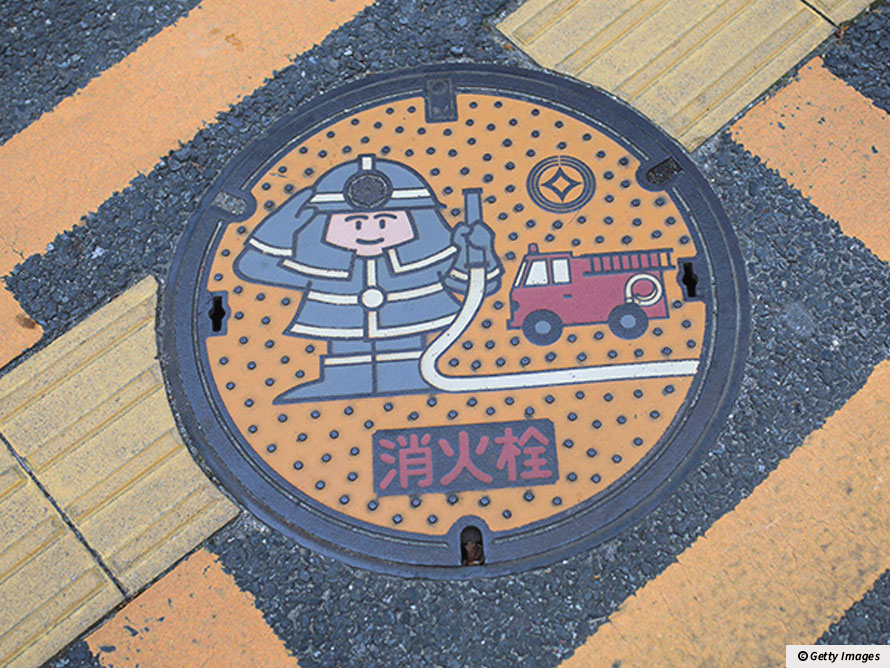Can anything be worth money? Many people in Japan have become obsessed with spotting and collecting manhole covers, while towns and cities compete to produce the best designs.
How manhole covers became the latest craze
 Covering costs: Tokyo has paid for 487,805 decorated covers for water and sewage works.
Covering costs: Tokyo has paid for 487,805 decorated covers for water and sewage works. Glossary
Mount Fuji - An active volcano in Japan. It is considered a sacred mountain.
Ephemera - Collectable items that were once expected to only be useful only for a short time.
Ornate - Highly decorated.
Civil servant - Civil servants help the government develop and carry out policies. They are non-political.
Municipalities - A town or district that has a local government.
Kyoto - Kyoto, once the capital of Japan, is a city on the island of Honshu. The Kyoto Protocol was an international treaty which extended the 1992 United Nations Framework Convention on Climate Change that commits state parties to reduce greenhouse gas emissions.
Connoisseurship - Expertise in a particular subject, such as a type of art.
